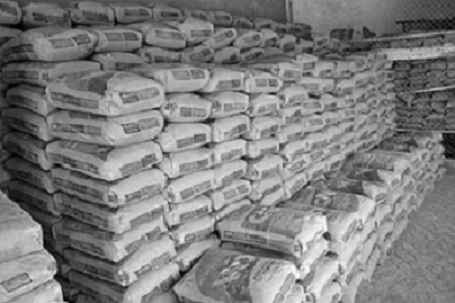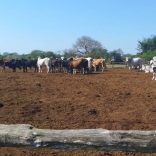Mozambique: Agriculture Minister meets with FAO Director-General QU Dongyu in Rome
INAE closes twenty open air ‘cement yards’ in Beira

DM
The National Inspection of Economic Activities (INAE) in Sofala on Monday announced the banning of at least 20 cement yards operating inside containers and under tarpaulins in Beira’s avenues and streets.
The measure accompanies the coming into force at national level of Decree 28/2016 of 18 July, which regulates the production, transportation and marketing of the product in the country.
Sofala INAE delegate António Chisseve said that the operation was rolling out nationwide, and that so far 20 outlets have been deactivated in Beira, Marromeu, Cheringoma and Dondo.
“After approval, the decree allowed 180 days for awareness-raising, and it was then decided that from October 1 we had to apply the measures in full. So while people may think there are problems in the supply of cement in Beira, this is not the case. What is happening is that cement is now being sold from warehouses under conditions dictated by law,” Chisseve said.
“The law says cement should be sold from suitable warehouses, where it is not exposed to sun, wind or rain. Workers should be properly equipped with protective masks to avoid inhaling dust. This benefits everyone. Fines for non-compliance range from 10 to 60 times the minimum wage,” he explained
“Everyone must comply with this measure otherwise they will be fined. Did you ever wonder what it would mean for an informal trader to be fined 60 times the minimum wage? It would kill off his or her business instantly,” Chisseve warned.
Despite the INEA warnings however, there are still reluctant traders in the neighbourhoods who continue to sell cement in small quantities despite the risks.
“In the first round we only ask the dealer to remove his/her product, but if he is a rider he takes a ticket. We have not had any such cases yet,” Chisseve said.
Certification
Another measure imposed on the marketing of cement is certification. National Institute for Standardization and Quality (INNOQ) director Alfredo Sitoe recently announced a ban on the sale of uncertified cement from 30 September in Maputo.
The measure, being part of decree 28/2016 of 18 July which approved regulations on the production, transport and sale of cement in Mozambique, requires that from that date all cement imported and produced locally must bear the INNOQ quality certification mark.
By António Cumbane













Leave a Reply
Be the First to Comment!
You must be logged in to post a comment.
You must be logged in to post a comment.